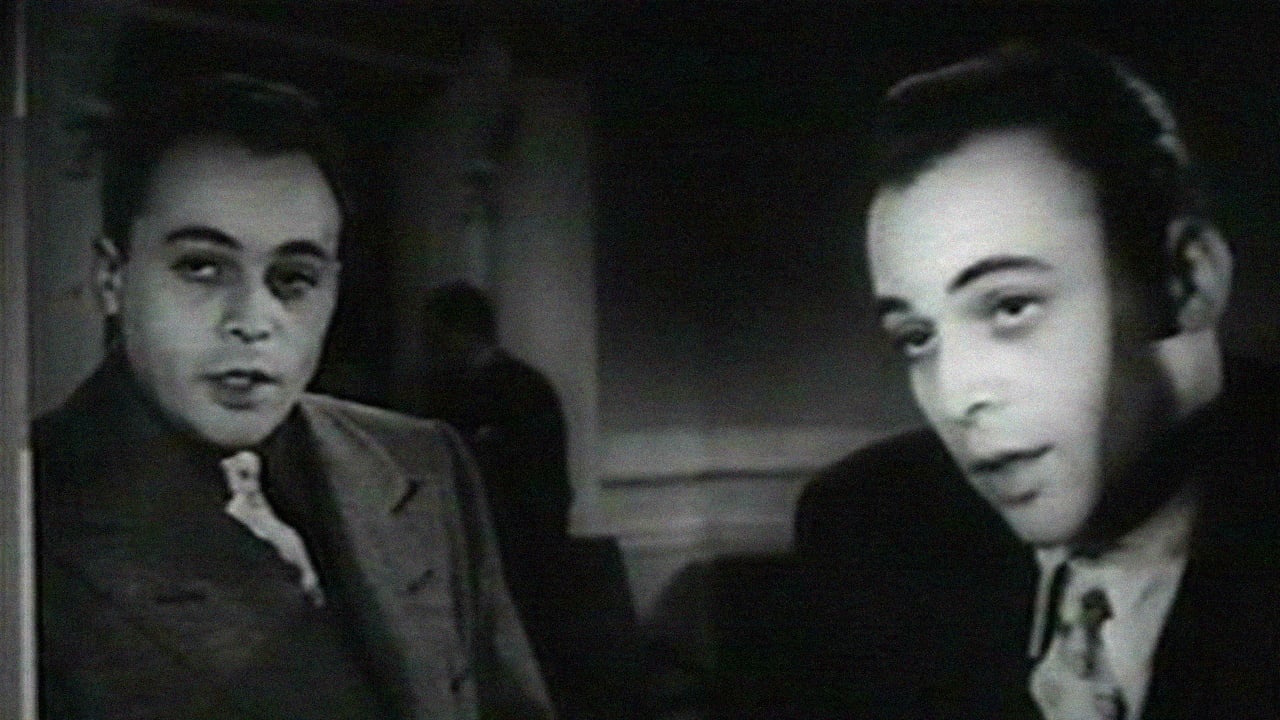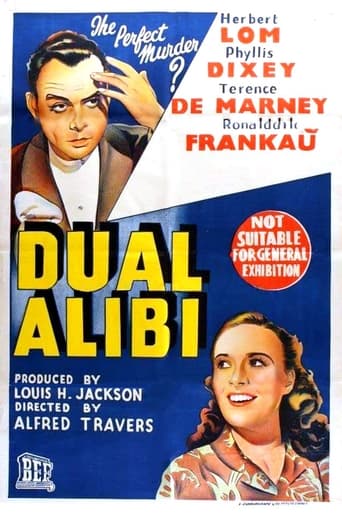

Clever and entertaining enough to recommend even to members of the 1%
... View MoreThis is one of the few movies I've ever seen where the whole audience broke into spontaneous, loud applause a third of the way in.
... View MoreA great movie, one of the best of this year. There was a bit of confusion at one point in the plot, but nothing serious.
... View MoreThe thing I enjoyed most about the film is the fact that it doesn't shy away from being a super-sized-cliche;
... View MoreThis is a very fine and interesting film noir — among the better films of post-war British cinema. The story with twin trapeze artists might be a bit far-fetched in some aspects, but the opening of the film is brilliant, as is the ending. The photography is in beautiful dark tones and the music accompanying the trapeze acts is excellent. Herbert Lom is convincing in the role of both twins. I think the merit of his subtle performance lies above all in not exaggerating too much the difference in character between the two twins. Extreme characterization is normally a much easier option for an actor or actress when one thinks of other famous stars playing twins, such as Bettie Davis, who did this twice in "Stolen Life" and "Dead Ringer", or Olivia de Havilland in "The Dark Mirror". This is an excellent British film noir which deserves to be much better-known. Apart from this, I have not seen any more films by Alfred Travers, who seems to be a totally forgotten director. Astonishingly, hardly anything seems to be known about his life and career (apart from the titles of the films he directed), not even the date of his death. This must surely have happened, as the only scant detail available about this director is that he was born in 1906, in Constantinople.
... View MoreDual Alibi is directed by Alfred Travers who also collectively adapts the screenplay with Stephen Clarkson and Vivienne Ades from a story written by Renalt Capes. It stars Herbert Lom, Phyllis Dixey, Terence De Marney and Ronald Frankau. Music is by Stanley Black and cinematography by James Wilson. Top French trapeze artists, the de Lisle twins (Lom), are hired by a British promoter to go work in Blackpool in the North West of England. Whilst in Blackpool one of the twins falls for an aspiring singer, causing tremors in the brother's relationship. But when news comes through that they have won the French lottery, the brothers unite in their good fortune. However, good fortune is not to last as their world comes crashing down in a ball of treachery, greed, the misfortunes of fate and murder! Moody monochrome, flashback structure, kilter circus atmosphere, femme fatale and a haunting musical score, welcome to the world of under seen British noir. The low budget is barely noticed as Travers and Wilson skilfully move the film at a good pace whilst draping it in shadows and murk, and the trick photography accomplishment that brings two Herbert Lom's together on screen brilliantly belies that this is a poverty row production. Lom is excellent in the dual role, giving each twin its own characteristic so the audience is never out of the loop. Yet he also deftly manages to ascertain a deep emotional bond between the two men, so when the darkness comes (the ending for instance is miserably non conformist) we feel the slap of film noir's hand. Around Lom are effective performances from Marney as the repugnant Mike Bergin and Dixey who slinks about with conviction as smouldering fatale Gloria Gregg (AKA: Penny). Highly recommended for anyone interested in British film noir. 8/10
... View MoreLike one or two others here, I recall seeing this on TV years ago. It certainly made an impression and watching it again recently reminded me why it did.The story never falters from the start and there's neither an extraneous scene nor wasted word of dialogue. The word 'noir' is often used inaccurately on IMDb and elsewhere these days to describe a run of the mill crime movie that happened to be shot in black and white, but this film is the real thing. Not a single scene takes place in daylight, and the often oppressive ambiance is caught in the opening shot as a bedraggled group of unemployed men are made up as clowns to go out in the pouring rain with sandwich boards to promote Vincent Barney's circus. The kindly Barney recognises one of the de Lisles, identical twins and trapeze artists who used to be his star attraction and who now recounts his fall from grace.Director Alfred Travers did not enjoy a high profile, making few films, mostly obscure second features, but he clearly knew what he was doing here. By comparison, for example, the renowned Terence Fisher's 'noirs' for Hammer in the early 1950s are heavy-handed and soporific. Apart from Travers' skill in keeping the story moving, the circus atmosphere is conjured brilliantly through the judicious choice of background music, particularly Stanley Black's haunting trapeze theme, since the budget apparently didn't stretch to featuring any actual circus acts apart from the twins' high-flying act and brief glimpses of a horse and an elephant. Not least he gets some excellent performances too. Herbert Lom is superb as the twins, bringing out their subtle differences, and with the aid of James Wilson's masterly trick photography, all the more remarkable on such a poverty row production, it's easy to suspend disbelief. The talented and popular comedian of radio and concert parties Ronald Frankau, making a rare screen appearance, brings charm, authority, and a sense of fun to his portrayal of the avuncular and sympathetic Barney. Terence de Marney is convincing as the repellent and ruthless Mike Bergin, whilst playing his accomplice, Penny, is 'Britain's First Lady of Striptease' Phyllis Dixey. She doesn't do a bad job; but this was only her second and last film appearance. Her striptease act must have been of a very genteel variety, in fact according to one aficionado 'her girls did the stripping while she gave the audience the occasional "flash"! She was portrayed by Lesley-Anne Down in an excellent TV biopic THE ONE AND ONLY PHYLLIS DIXIE, broadcast in November 1978.DUAL ALIBI concludes with a twist ending as unforced and logical as it is uncompromising, and should definitely be a candidate for DVD release by one of those companies specialising in forgotten classic British films!
... View MoreI remember seeing this film some forty years ago. I was still at school and found it curiously absorbing. In fact I could'not stop telling everybody about it for days afterwards. I recall the film creating an atmosphere at once dark and foreboding. There was an understated menace in the air much as in the opening pages of a story by H.P. Lovecraft. The plot was relatively straight forward but with a delicious twist at the end that has been likened to a tale by O. Henry. What carries the film is the sublime performance of Herbert Lom. Now there was an actor who played the archetypal smooth villain of his day. In fact I cannot think of any other actor who so consummately conveyed villainy with such effective "European" sophistication and grace. A role portrayed to perfection in "The Ringer" with Donald Wolfit, "the Golden Salamander" and later, "Northwest Passage" with Kenny More and Lauren Bacall. Shades of Conrad Veidt of an earlier generation. Herbert Lom was a busy actor who appeared in numerous film and theatre productions during the fifties and sixties. Few will remember that he took the lead role when "The King and I" first came to London at Drury Lane (I think) and that he was the natural choice for the Harry Lime role in the radio version of "The Third Man" (circa, 1951). His brooding "European" looks and deep and accented speech were instantly recognised by the audiences of his day and although never a major top-of-the-bill star, was a respected member of any cast (e.g. "and with Herbert Lom as Napoleon") and by todays standards would be considered an A-list celebrity.
... View More